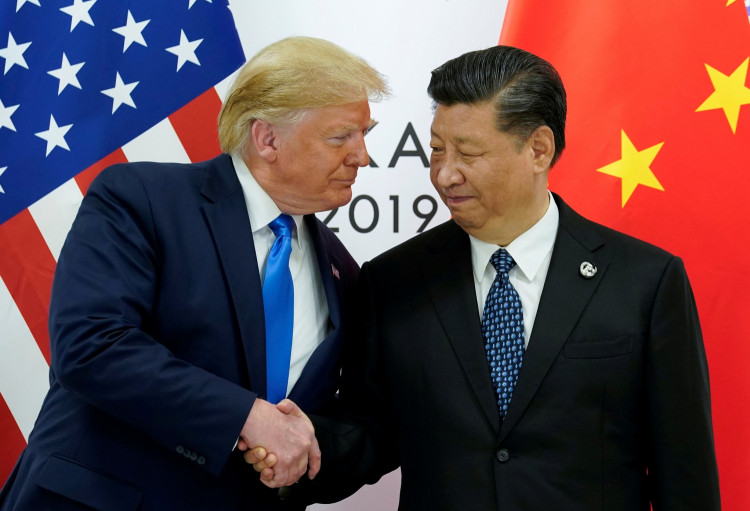President Donald Trump on Wednesday ruled out easing the United States' sweeping tariffs on Chinese imports ahead of a critical round of trade talks, a stance that risks deepening the current deadlock with Beijing and further disrupting global commerce.
Asked in the Oval Office whether he would consider reducing the U.S. tariff rate-currently averaging 147.6% on Chinese goods according to the Peterson Institute for International Economics-Trump replied simply, "No."
The remarks come just days before U.S. Treasury Secretary Scott Bessent is scheduled to meet Chinese Vice Premier He Lifeng in Switzerland to discuss de-escalating trade tensions. While Bessent signaled that Washington is open to a mutual reduction in tariffs, Trump made clear he would not unilaterally roll back duties to bring Beijing to the table.
"We were losing a trillion dollars a year, now we're not losing anything, you know? It's the way I look at it," Trump said, defending his protectionist strategy.
China responded firmly. Foreign Ministry spokesman Lin Jian said, "This tariff war is started by the US. If a negotiated solution is truly what the US wants, it should stop threatening and exerting pressure, and seek dialogue with China on the basis of equality, respect and mutual benefit."
Bessent, in a Fox News interview Tuesday, acknowledged the pressure on both sides. "This isn't sustainable, as I said before, especially on the Chinese side - and, you know, 145%, 125% is the equivalent of an embargo. We don't want to decouple - what we want is fair trade."
Meanwhile, the economic toll of the tariff standoff is becoming increasingly evident in U.S. logistics. The ports of Los Angeles and Long Beach, which together handle a significant share of U.S.-China trade, reported a 44% drop in docked vessels for the week of May 4 compared to a year earlier.
Retailers are sounding alarms over potential inventory shortages, and a report by Apollo Global Management last week forecast a summer recession driven by supply disruptions and layoffs across the retail and trucking industries.
Trump, however, has dismissed these concerns. "Somebody said, 'Oh, the shelves are going to be empty'. Well, maybe the children will have two dolls instead of 30 and maybe the two dolls will cost a couple of bucks more than they would normally," he said on April 30.
Trade between the two nations remains significant. The U.S. imported $438.9 billion in goods from China in 2024, while China imported $143.5 billion in goods from the U.S., according to the Office of the U.S. Trade Representative.






